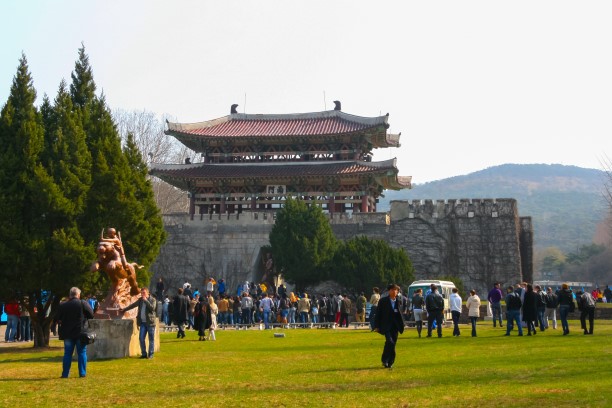North Korea stands for surveillance, foreclosure, and oppression. On the other hand, the country is open to tourists, but a trip is only possible under strict conditions. Hoe to travel to North Korea?
North Korea is not a classic destination. But traveling there is not impossible. “The North Korean government has greatly encouraged tourism in their country,” says Harry Reingruber of the German Travel Network.
Who is allowed to enter North Korea?
Almost everyone can travel to North Korea – except South Koreans. “Even journalists can be banned from coming,” says Jianli Chen of the travel company China Hansa Travel. For the entry to North Korea tourists need a visa. The organization always accepts organized groups, who request visas at the embassy. “Collaboration with the authorities is easier than in many other countries,” Reingruber added.
How does it work?
Every trip to North Korea must be booked as a package holiday and it is not cheap. Eight days from Beijing cost around 2000 euros. The tours are one to two weeks long and always start in China’s capital. From there, one of the few flight connections with North Korea is the capital Pyongyang. All hotels, restaurants and excursions are selected beforehand.
You can express certain desires, but ultimately the government determines what the tourists see. And they cannot ever be left alone in the country. Every trip is accompanied by two tour guides and a driver. Individual excursions on one’s own are forbidden. But the companions are by no means mere grumpy watchers. “Many of the tour guides speak fluent German or other language,” says Reingruber.
What do visitors see in North Korea?
There are about 15 places to visit when people travel to North Korea. Naturally, visitors are kept away from poverty stricken regions and sites showing structural problems in the country. Most of the tour, the travelers stay in Pyongyang. From the capital, the organizers also offer tours to the mountains. Visitors can go hiking or skiing. Visits to historic buildings are also possible. The Goguryeo grave complex and the historical monuments in Kaesong are world cultural heritage sites recognized by UNESCO.

What are the restrictions for tourists?
Electricity and hot water are regularly discharged in North Korea. “The hotels are of better middle class quality,” says Chen. Mobile network does not exist, Internet only rarely under strict conditions. Tourists can use telephones in most hotels without problems. The money for all planned expenses is paid on the spot in cash. There are also no ATMs, but you can pay in euros. With the Korean Won visitors usually have as little contact as with the actual happening in the country.
What should visitors never do?
Critical questions to the tour guides are not advisable. “A devaluation or insult of the political system is a no-go,” says Eric Ballbach from the Institute for Korean Studies at Freie University in Berlin. The same applies to Western symbols. Taking a German newspaper or the Bible is taboo. How the government reacts depends mainly on the home country of the visitors. In worst case scenarios, tourists are used for political pressure, says Ballbach.
Health precautions?
There is no mandatory vaccination protection for North Korea. The Federal Foreign Office, however, recommends vaccinations against tetanus, diphtheria, polio and hepatitis A. “The health system in North Korea is dramatically bad,” says Ballbach. It is necessary to bring sufficient medicines from your country. It is also advisable to take a travel insurance from abroad, which also covers the medically meaningful return transport.
Is a trip to North Korea ethically justifiable?
“The individual motive for the journey is decisive,” says Ballbach. One should not travel to North Korea just for a stamp in the passport or funny story. About 300 Germans travel to the country every year, according to Reingruber.
Many want to better understand the happenings in North Korea. Others are interested in the communist system. The idea that tourists directly finance the military thanks to their trip is not true. In North Korea, there are various economic cycles. The revenues from tourism flow into the planning economy. Military spending and nuclear weapons have a distinct economic cycle, explains Ballbach.